bonjour, you. if you’re new to The Onion Papers, i’m so happy you’ve come. Peels are a round-up feature at TOP, a writer’s almanac featuring bread, soil, reading and sky updates that comes out on the first Monday of each month. happy reading and clicking,
margaux
Whimsical June – greedy, indecisive and giving. The berries are bulky and green or red and wee, the tree at the front of the house needs pruning, so do the sage before dinner and the lettuce at noon. The abundant rain unearthed the garlic, dry weeks followed. Followed by a deluge, always. Still, you woke up because rituals are harder to forbid than a routine, so you walked up that hill on time for the solstice despite the lurking fever clogging your joints and the bruising, and you climbed on top of a slide in the kids’ playground just before 4 in the morning so you could get even closer to the sun, right as it hooked itself on to the highest point in the sky. The leaves blew with the wind but the light didn’t switch on – a grey summer day, as teasing as new beginnings tend to be. You have stopped to stick a pine branch between your fingers, scratchy, up to your nose, fragrant. It smells of wet ashes, just like yesterday and for as long as you can remember wet pine tree forests. You wonder how you can be watching still. Find reasons to keep on washing the dishes and working and all things in between that say, eh, the living must keep on living for life to thrive. But what if we stopped? Do nothing no more for as long as how we live here entails genocide elsewhere. Nothing no more than to ask for Gaza to be free. For humanitarian aid workers and volunteers to be allowed through the barricades and for them to come through the other side alive, carrying packages filled with basic resources and medicines. But you are warned to stay vigilant for signs of oak processionary moth, so you do look out for their cotton-like nests. Anything close to home, threatening. And always carry a coin in your pocket, so you can grab a peach at the deli on your walk with the dog, or on your own, or with a pal, syrup running down your chin, ticklish and cheeky. Sit on a bench to catch some colour on your cheeks now that you’ve wiped yourself. Good thing that you’re carrying a book too, though how unsettling is it when the so-called dystopian novel reads like non-fiction?
‘I have also read that the Pox [or the Apocalypse] was caused by accidentally coinciding climatic, economic, and sociological crises. It would be more honest to say that the Pox was caused by our own refusal to deal with obvious problems in those areas. We caused the problems: then we watched as they grew into crises.’
– Parable of the Talents by Octavia E. Butler



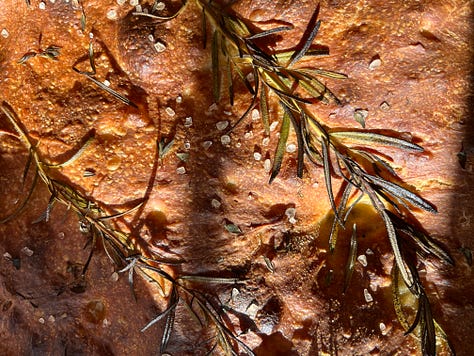


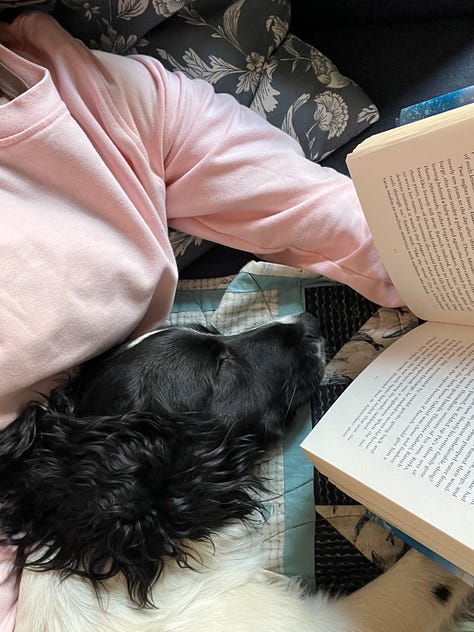
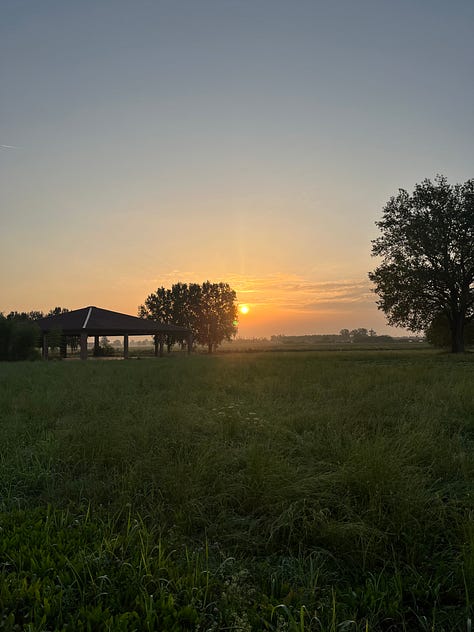
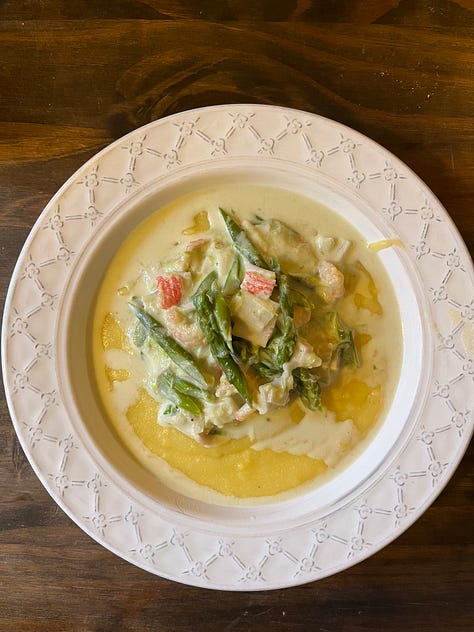
bread update
‘Breadmaking is both time-constraining and unreliable, just like writing. It’s all theory until it’s being performed’ – for the Mslexia summer edition, I wrote about the similarities between writing and baking bread. The article is available in the print edition of the magazine and features a recipe for one of my writing loaves (for which you only need store-bought yeast, flour and water).
Speaking of drafts, today July 7th marks three years since my debut novel, The Yellow Kitchen, published. I could never have predicted that I would be writing this from an actual yellow kitchen, but here I am, and I am here to say that this book – Claude, Giulia and Sophie – will always stand for the families we build. If you are feeling awkward in your corner of the world, I do hope TYK will find you and be a good friend. You can always write to me afterwards.
Bread should be broken too, so this week I will be baking Claude’s loaf: wholemeal and spelt flours (80/20 ratio), a dollop of sourdough starter, seventy percent hydration; kneading, three rounds, resting in between TBC on moods; let the dough rise overnight in the fridge, stretch and fold with sunrise, 4-hour proof and one hour in the oven (in a cast iron for 40 minutes with the lid on, 20 minutes uncovered). Voilà, it smells like the boulangerie.
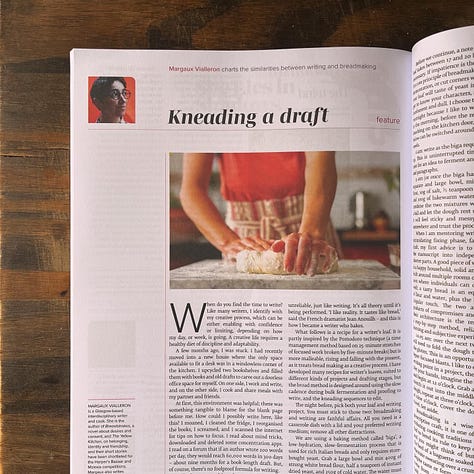
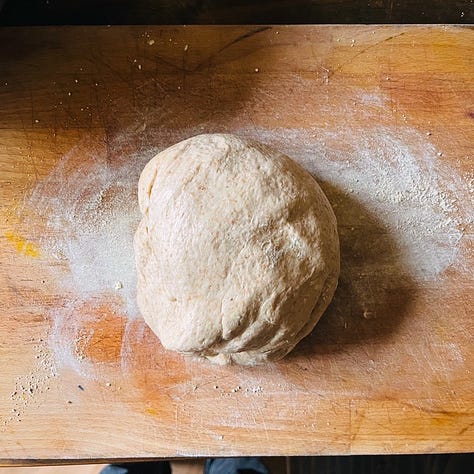
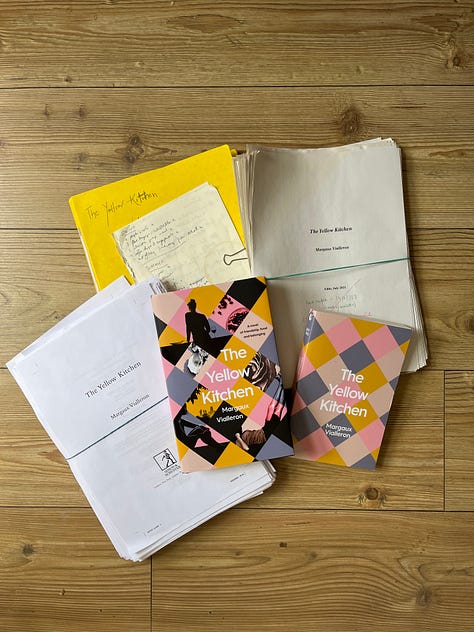
reading, listening
Mostly reading this month – and one in praise of picking up a hefty hardback to perk periods spent lying flat on my back.
Returning readers of The Onion Papers will know that I have embarked on a reading journey through the unabridged version of Victor Hugo’s Les Misérables. And I recommend the long road. Set during the ruling of Napoleon I, this is the story of the wrongfully imprisoned and peasant Jean Valjean and his nemesis police officer Javert. The classic novel still contains contemporary multitudes, from topics of justice, faith and truth, fate and love and redemption but, if I was familiar with Les Misérables as a book about redemption, this unabridged edition has switched my perspective. As Hugo ‘digresses’ from the story, chiming in with socio-political and character details, as he asks of his readers to interact with him to be active readers of historical events, it became a novel about punishment and whether punishment is ever a valid course of action. I will have more to say about this.
Still in fiction, I gulped Madeleine Thien’s The Book of Records. Lina and her ailing father have taken refuge at the Sea, an enclave and staging post between migrations, with three volumes from The Great Lives of Voyagers encyclopaedia series for sole possession. As Lina gets to know her unusual neighbours, a bunch of international and intergenerational poets, philosophers and scholars, the past and potential futures collide. The Book of Records is an epic of ideas and philosophies, a historical novel about the role of fate in history. It is curious, playful and clever; it is adventurous, too, and I recommend it to anyone who is looking for a mental escape.
“Impossible,” she said, almost angrily. “You won’t. The only way to really remember is to forget everything and let time fill the story up. To reach it through a different doorway. Things have to inhabit the living or else disappear from the world and cease to exist. If things survive it’s not through abstract thought, but the realities that gave rise to those thoughts.’
– The Book of Records by Madeleine Thien
Speaking of visionaries but looking ahead this time, I also read Parable of the Talents by Octavia E. Butler. Asha was born into a broken world, the blurb begins. Her country has embraced a violent, far-right President who promises to ‘make America great again’ and California is one endless heatwave. In her journals, Lauren Olamina sings the paise of a new faith – ‘God Is Change’, she preaches – until she must choose between the well-being of her daughter and followers versus human destiny. Parable of the Talents is precise, clairvoyant and unnerving with déjà-vus.
In non-fiction, I read Francesca Wade’s biography of Gertrude Stein. From Stein’s degree in neuroscience to her move to Paris and the beginning of the Rue de Fleurus apartment she initially shared with her brother, all the way to her escape in the French countryside with Alice B. Toklas during the war and to her sell-out publicity tour after the publication of The Autobiography of Alice B. Toklas, Wade’s biography is informed not gossipy. Stein was and remains a complex and contradictory figure, who could be radical and experimental with her writings, entertain a bohemian life and be a mentor to artists and writers, as much as she could be narrow-minded, stubborn and self-centred. She had entrusted Toklas with her Estate too, tasking her lifelong partner not to let her be forgotten. ‘Identity always worries me and memory and eternity,’ Stein had written in Everybody’s Autobiography, which summarises my reading of Wade’s biographical endeavour with the publication of Gertrude Stein: An Afterlife.
‘But the world is still unpredictable and still we survive by the grace of chance and the strength of our choices.’
– Gathering Moss by Robin Wall Kimmerer
While pottering around the garden, I listened to Robin Wall Kimmerer’s natural and cultural history of mosses: Gathering Moss. ‘This is the electricity of photosynthesis, turning sun into sugar, spinning straw into gold,’ Robin Wall Kimmerer writes and, as ever, she shows us how we often fail to see nature for the forces it gathers. Mixing science, philosophy and personal reflections, this is a dive into the simple lives of mosses and what they can teach. It is energising (and quiet, or tender, as you wish to call the feeling).
On the 21st day of June, regardless of the year count, I always miss being in France for the fête de la musique. A playlist instead:
in the kitchen
If winds awake but humidity levels keep rising, an insalata pantesca:
potatoes, peeled, boiled, cooled and squared
tomatoes, scored, roughly chopped
red onion, thinly sliced
capers
oregano
olive oil
white vinegar
salt
In a large serving bowl, toss all the ingredients. Mix and dress with olive oil, vinegar and salt.
*
Minty, pillowy ravioli, served in a seafood tomato sauce, when I cannot go dancing:
for the dough: 250g flour (00); 2 large eggs (full); salt and olive oil
In a bowl, pour in the flour, dig a hole in the middle and crack the eggs. Sprinkle salt and drizzle some olive oil. With the help of a fork, beat the eggs and keep going as the dough comes together. Once you have a homogenous mixture, keep kneading with your hands until you will have a firm dough. Form a ball and let it rest underneath an upside-down bowl.
for the filling: ricotta, mint, salt and pepper.
Mix well. Chill in the fridge.
for the tomato sauce: shallots, sliced; capers, roughly chopped; parsley, roughly chopped; tomato cherries and/or plums, roughly chopped (skinned if you can be bothered); tomato purée; squid, ringed; prawns, shell and head removed.
In a large casserole, heat up some olive oil and reduce the heat. Gently fry the shallots, capers, parsley. Add the tomatoes, breaking them with a wooden spoon as they cook. Reduce the heat, a squeeze of tomato purée, simmer. Reduce the heat to a minimum, add the seafood, cover and simmer.
Assemble the ravioli. In a pot, bring water to the boil, salt and cook the pasta. Transfer into the casserole wand mix in with the tomato sauce. Mixing constantly (but gently), increase the heat for a minute or two. Heat off, season to taste – serve.
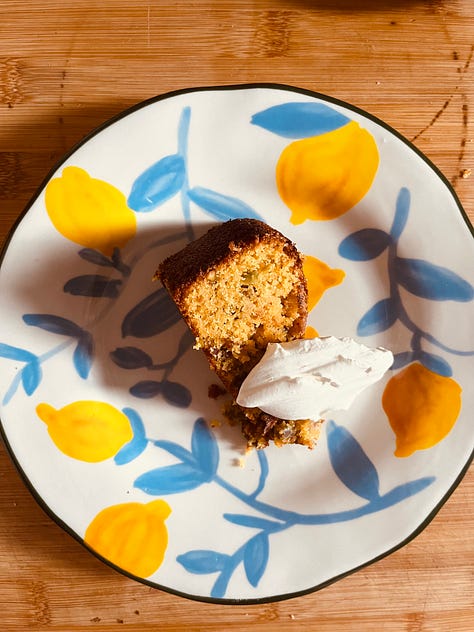
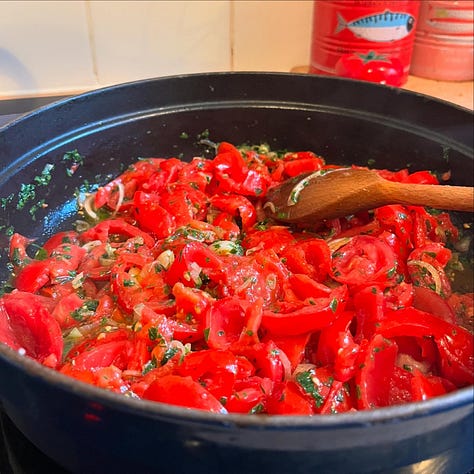
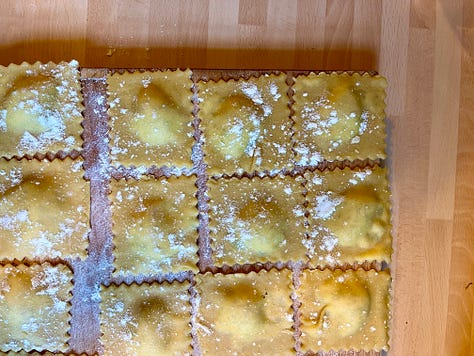
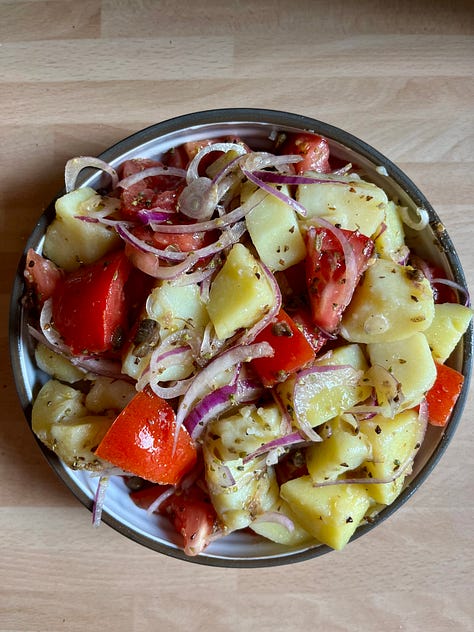

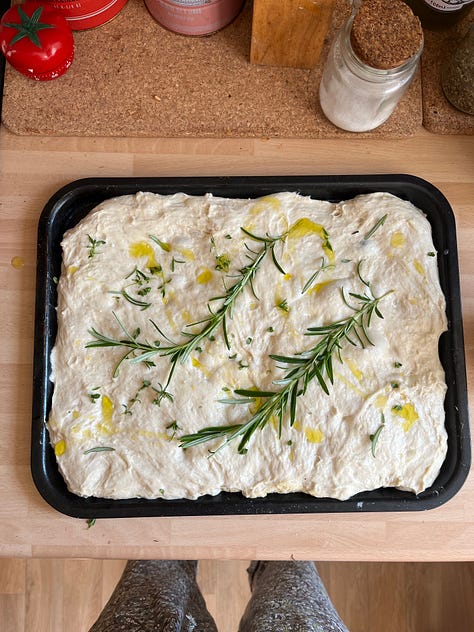
And if an insomnia drags you into the kitchen in the depths of the night, the oven will shoosh the ghosts away for you. Lemon, lime and polenta cake:
100g pistachio, roughly chopped
200g polenta
10g yeast
150g brown sugar
zest and juice of 2 limes
juice of 1 lemon
3 eggs
150g extra virgin olive oil
In a bowl, mix the pistachio, polenta, yeast, sugar and lime zest. Set aside. In a separate and larger bowl, beat the eggs, add the olive oil and the lemon and lime juice. Mix well. Add a pinch of salt. Mix. Slowly incorporate the dry mixture with the wet one, mixing continuously until you will obtain a homogenous cake preparation. Transfer into a baking tin and bake at 180C until it’s cooked to your taste. It took mine about 25 minutes (my oven is unreliable).
[NB. let it cool, cut and pack a slice away for a walk.]
*
Shakshuka, tomatoey and wet enough to loosen the hardening schiacciata on the kitchen counter:
2 tbsps. of paprika
2 tbsps. of za’atar
1 tbsp of ground fenugreek
2 garlic cloves, chopped
1 onion, sliced
1 pepper, chopped
1 tomato, chopped
1 can of tomato sauce
1 onion stock
4 eggs
fresh parsley, roughly chopped
In a flat and large casserole, for which you have a lid, heat up the paprika, za’atar and fenugreek for one minute. Add a gulp of olive oil, the garlic and the onion. Reduce the heat and swirl with a wooden spoon for approx. 3-4 minutes. Add the pepper. Cook until tender. Add the chopped tomato and the can of tomato sauce, as well as a gulp of boiling water and the stock. Simmer for 10-15 minutes. You can add a pinch of salt or sugar, or none, depending on your taste. Crack one egg after the other and cover the casserole with a lid. Cook the eggs for as long as you wish them to be hard. Sprinkle fresh parsley on top and serve.
from the Onion Papers
After Les Misérables by Victor Hugo and Being and Nothingness by Jean-Paul Sartre; the recipe (or lack thereof) as a prompt for Solstice Kitchens:
/
Between places, I wrote about ‘the recipe as a prescription’, one for returning and going, for hope:
To return somewhere formative is a vertiginous undertaking. When I visit London, when I think about the suburbs of Paris, two places where I have lived for more than half of my life combined, I am met with a void — the figurative expression of the actual distance I can otherwise feel. I hear it ring; it is brief but sharp, like broken glass as it scars my skin.
looking ahead (Glasgow, GMT)
Snooze – summertime settles down, gentler if not hotter, not after the June heatwaves. The moon will be full on the 18th day of the month and in Capricorn – grounded, determined, wild. Send that difficult email or text; find that safe space where you can ask questions; apply for that job, funding, course; share a secret with a new friend; greet a stranger; be bad at the hobby of your choice, and keep showing up; preserver; how exhilarating it is to learn something new? Cook with an ingredient you aren’t familiar with. Some prompts: beetroot, cauliflower, chard, fennel, globe artichoke, kohlrabi, radish, samphire are in season. If anything goes wrong, a generous drizzle of olive oil a crudo will come to the rescue. All good goats know that to climb up a mountain, endurance must be knee-scratching, stubborn. Plenty of July ingredients don’t require any cooking either – bite deep into those tomatoes, that celery stick and the broad beans as you deshell them, milky! Apricots, cherries, nectarines, spitting stones. Be in love – with a book, a feeling, an idea, a painting. July is a good month to celebrate and challenge all great and small things. Accept a dance with yourself after sending that difficult email or text or application. The daisies and the buttercups have returned in the park, inoffensive and constant, so do take yourself out for a mending picnic once you will have prepared that new dish – pretty much anything tastes better when it’s eaten somewhere it shouldn’t be eaten. So they say. Or do none of it either, cozy at home on a summer day, as you say. Either way, keep digging for peace. As Mamie said: only the French would storm inside the Bastille on a hot 14th of July. You go on making a wish, followed by a Capricorn’s promise: keep showing up and dancing as you are.
margaux
thank you for reading The Onion Papers. i’m margaux, a writer and cook, and this is my hybrid newsletter. if you enjoy my work, remember to subscribe and/or invite friends to the party as you keep me going.








